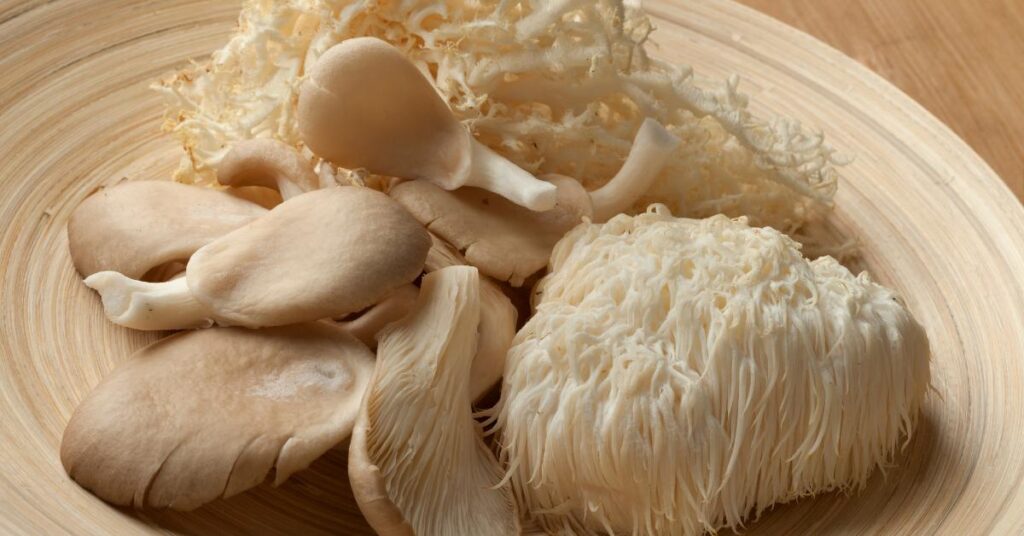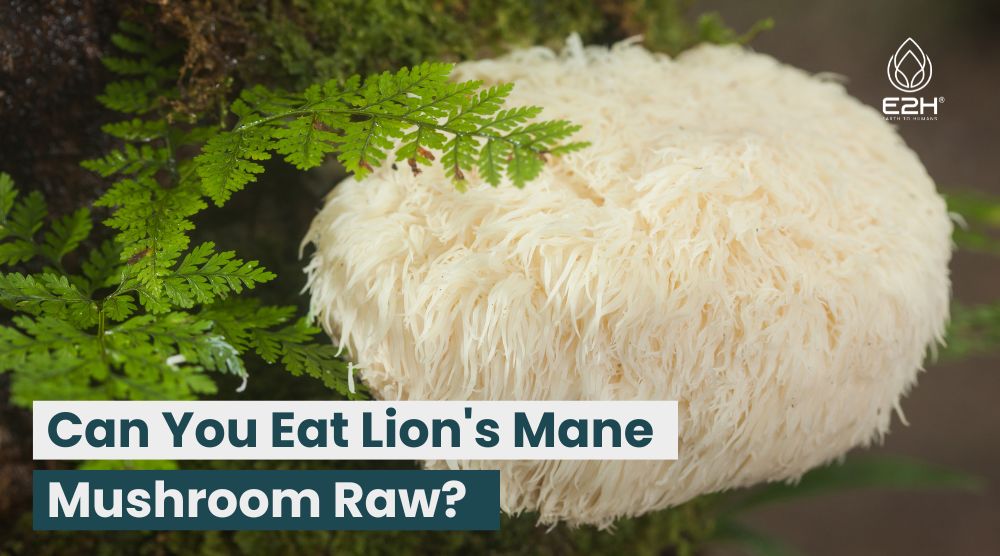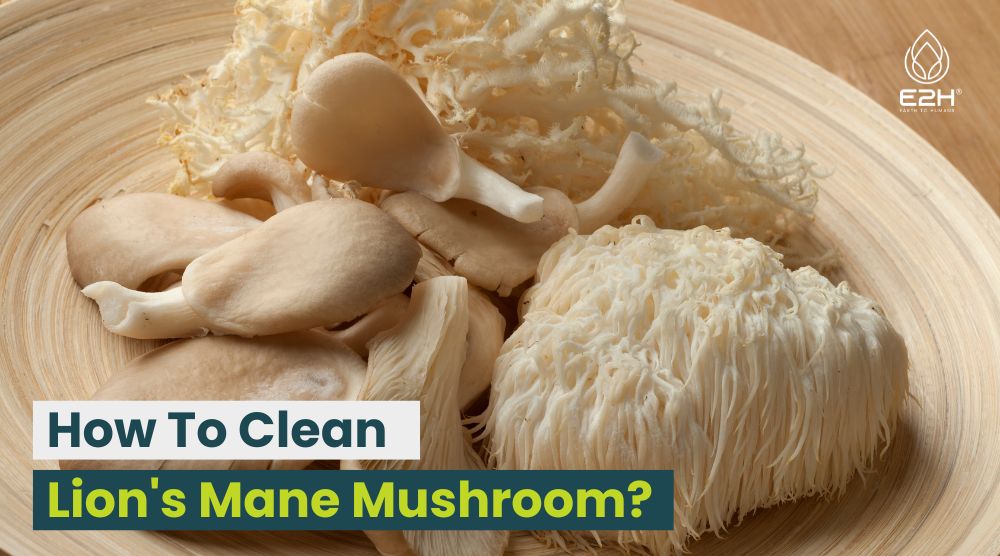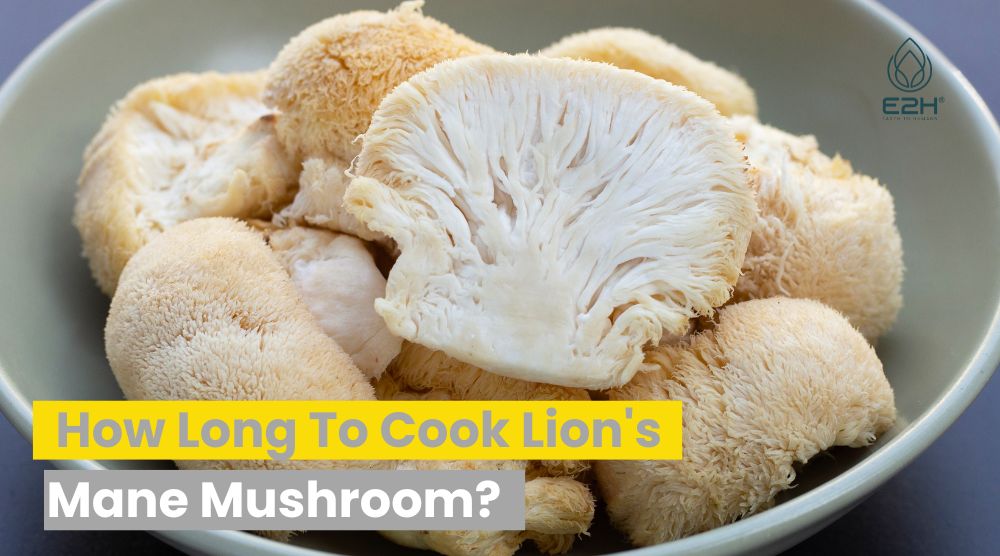Lion’s Mane Extract For Multiple Sclerosis Symptom Management: Lion’s Mane extract shows promise for managing multiple sclerosis symptoms, but more research is needed. Consult with healthcare professionals for guidance on its use as a complementary approach.
What is Lion’s Mane Extract?
Lion’s Mane extract is derived from the Lion’s Mane mushroom, a medicinal fungus known for its unique appearance resembling a lion’s mane. This extract of medicinal mushroom contains bioactive compounds, including erinacines and hericenones, which are believed to possess neuroprotective and neuroregenerative properties.
Lion’s Mane extract of medicinal mushrooms has been used in traditional medicine for centuries, particularly in Asian countries, and has gained popularity for its potential mental health and benefits. Lion’s Mane mushroom is popular in Asia, especially in China and Japan, due to its culinary uses and traditional medicinal properties.

Understanding Multiple Sclerosis Symptoms
Multiple sclerosis is chronic autoimmune disease characterized by a wide range of symptoms that can vary from person to person. Common symptoms include fatigue, muscle weakness, coordination problems, cognitive impairment, and sensory disturbances. Managing these symptoms effectively is crucial to enhance the quality of life for individuals living with MS. However, the complex nature of the disease presents challenges in finding suitable treatment options.
Role of Lion’s Mane Extract in Multiple Sclerosis
Lion’s Mane extract has shown promise in managing multiple sclerosis symptoms. Research suggests that its bioactive compounds may help in reducing inflammation, promoting nerve growth, and protecting against oxidative stress, which are all factors implicated in the development and progression of MS. Several studies have investigated the potential benefits of Lion’s Mane extract in improving symptoms and overall well-being in MS patients.
How Lion’s Mane Extract Works?
The mechanisms of action of Lion’s Mane extract in relation to multiple sclerosis symptoms are still being explored. However, it is believed that the bioactive compounds in Lion’s Mane extract promote the production of nerve growth factors, which can stimulate the growth and repair of damaged nerves. Additionally, Lion’s Mane extract exhibits antioxidant and anti-inflammatory properties, which may help reduce inflammation in the central nervous system.
Using Lion’s Mane Extract for Symptom Relief
When considering the use of Lion’s Mane extract for symptom relief in multiple sclerosis, it is important to follow the recommended dosage and administration guidelines. While generally considered safe, some individuals may experience mild side effects such as digestive discomfort. Consulting with a healthcare professional before starting any new supplement is advised, particularly for those already on medication or with pre-existing medical conditions.
Lion’s Mane Extract and Cognitive Function in MS
Cognitive impairment is a common symptom experienced by individuals with multiple sclerosis. Lion’s Mane Mushroom extract has shown potential in improving cognitive function by promoting nerve growth and protecting against neuronal damage. Some studies have reported positive effects of lion’s mane on memory, attention, and overall mental clarity in MS patients who supplemented with Lion’s Mane extract.
Lion’s Mane Extract and Fatigue Management
Fatigue is a debilitating symptom that significantly impacts the daily lives of individuals with multiple sclerosis. Lion’s Mane extract may offer relief from fatigue by boosting energy levels and reducing exhaustion. Although more research is needed to fully understand the benefits of lion’s mane and its effects on fatigue management in MS, preliminary studies have shown promising results in improving energy and reducing the severity of fatigue symptoms.

Lion’s Mane Extract and Nerve Function
Maintaining healthy nerve function is crucial for individuals with multiple sclerosis. Lion’s Mane extract has been studied for its potential to support nerve regeneration and repair, potentially easing neuropathic pain and improving sensory symptoms. While the precise mechanisms of nerve regeneration are not yet fully understood, the neuroprotective properties of Lion’s Mane extract make it an intriguing option for MS symptom management.
Lion’s Mane Extract and Inflammation Reduction
Inflammation in the central nervous system plays a significant role in the progression of multiple sclerosis. Lion’s Mane extract has been found to possess anti-inflammatory properties that may help reduce inflammation and its detrimental effects on nerve cells. By modulating the inflammatory response in peripheral nervous systems, Lion’s Mane extract could potentially alleviate the symptoms of multiple sclerosis and slow down disease progression.
Lion’s Mane Extract and Immune System Modulation
In multiple sclerosis, the immune system mistakenly attacks the protective covering of nerve fibers, leading to nerve damage. Lion’s Mane extract has been studied for its potential to modulate the immune system, restoring balance and preventing further damage. While more research is needed, these immune-modulating properties show promise in managing multiple sclerosis symptoms and potentially slowing down the disease’s progression.
Lion’s Mane Extract and Quality of Life
Living with neurological diseases or multiple sclerosis can significantly impact a person’s well-being and overall quality of life. Lion’s Mane extract, with its potential to relieve symptoms, improve cognitive function, reduce fatigue, support nerve function, and modulate inflammation, may contribute to an enhanced sense of well-being. Additionally, Lion’s Mane extract has been found to have mood-enhancing effects, reducing anxiety and promoting relaxation.
Lion’s Mane Extract as a Complementary Approach
It is important to note that Lion’s Mane extract should be considered as a complementary approach to conventional treatments for multiple sclerosis. While it shows potential in managing symptoms of progressive disease, it is not a substitute for prescribed medications or other therapies. It is crucial to discuss the use of Lion’s Mane extract with healthcare professionals to ensure safety, avoid potential interactions, and consider individual circumstances.

Patient Experiences and Testimonials
Real-life stories of individuals with multiple sclerosis who have incorporated Lion’s Mane extract into their symptom management regimen can provide valuable insights. Personal accounts often highlight the improvements in symptom relief, improved cognitive function,, energy levels, and overall well-being experienced by these individuals. While anecdotal evidence should be considered alongside scientific research, patient testimonials can help individuals make informed choices.
Is Lion’s Mane good for people with MS?
Lion’s Mane medicinal mushroom, (Hericium erinaceus) shows potential benefits for people with multiple sclerosis (MS). It contains compounds that may promote nerve growth factor (NGF) production, which could support both nerve cell growth and health and potentially alleviate MS symptoms.
However, further research on medicinal mushrooms is needed to determine its effectiveness and optimal dosage for MS management. It is crucial for individuals with MS to consult with their healthcare providers before incorporating Lion’s Mane into their treatment plan to ensure it is safe and appropriate for their specific condition.
What medications should not be taken with Lion’s Mane?
While Lion’s Mane is generally considered safe, it is important to be cautious when combining it with certain medications. Since Lion’s Mane may increase the production of NGF, individuals taking medications that affect NGF levels or have potential interactions with NGF should exercise caution.
Examples of such medications include certain antidepressants, immune-suppressing drugs, and medications used for cancer treatment. Always consult with a healthcare professional or pharmacist before combining Lion’s Mane with any medication to ensure there are no potential interactions or adverse effects.
Is Lion’s Mane good for autoimmune?
Lion’s Mane mushroom has been studied for its potential health benefits, in autoimmune conditions other neurological diseases, but more research is needed to establish its effectiveness. Some animal studies do suggest that Lion’s Mane may modulate the immune system and have anti-inflammatory properties, which could potentially be beneficial in autoimmune diseases.
However, it is important to note that autoimmune conditions are complex, and individual responses to treatments can vary. People with autoimmune conditions should consult with their healthcare providers before using Lion’s Mane or any other supplement to ensure it is safe and suitable for their specific situation.
Who should not take Lion’s Mane mushroom?
While Lion’s Mane is generally safe for most people when consumed in moderate amounts, there are a few exceptions. Individuals who are allergic or hypersensitive to mushrooms should avoid Lion’s Mane. Additionally, individuals with bleeding disorders or those taking anticoagulant medications should exercise caution, as Lion’s Mane may have mild anticoagulant properties.

Pregnant or breastfeeding women should consult with their healthcare provider before using Lion’s Mane due to limited safety data. As always, it is important to consult with a healthcare professional before starting any new supplement, especially for individuals with pre-existing medical conditions or those taking medications.
What is the role of brain-derived neurotrophic factor (BDNF) in the brain and nervous system?
BDNF, a protein, plays a crucial role in promoting the growth, development, and survival of neurons in the brain and nervous system. It aids in the formation of new connections between neurons, known as synapses, and supports the plasticity of neural networks. BDNF also contributes to neurogenesis, the generation of new neurons, and is involved in regulating various cognitive functions, including learning and memory. Overall, BDNF is essential for maintaining the health and functionality of brain cells of the brain and nervous system.
How does Lion’s Mane stimulate the synthesis of Nerve Growth Factor (NGF) protein?
Lion’s Mane contains bioactive compounds, such as hericenones and erinacines, which have been found to stimulate the synthesis of Nerve Growth Factor (NGF) protein. These compounds can cross the blood-brain barrier and activate specific pathways that promote NGF production. NGF plays a crucial role in the maintenance and regeneration of nerve cells, as well as the production of the myelin sheath. The exact mechanisms by which Lion’s Mane stimulates NGF synthesis are still being studied.
This Mushroom Improves Brain Health and Memory! (Multiple Sclerosis/Stroke/Alzheimer’s/Lion’s Mane)
FAQs
Can Lion’s Mane extract cure multiple sclerosis?
Lion’s Mane extract cannot cure multiple sclerosis. It may help manage symptoms, but more research is needed.
Is Lion’s Mane extract safe to use with conventional MS medications?
It is important to consult with healthcare professionals before combining Lion’s Mane extract with conventional MS medications.
How long does it take to see results from Lion’s Mane extract?
The time to see results from Lion’s Mane extract can vary. It is best to consult with healthcare professionals for personalized guidance.
Are there any contraindications or interactions with other medications?
Lion’s Mane extract may interact with certain medications. Consult with healthcare professionals to assess contraindications and potential interactions.
Can Lion’s Mane extract be used by individuals without multiple sclerosis?
Yes, Lion’s Mane extract can be used by individuals without multiple sclerosis for its potential health benefits.
Conclusion
Lion’s Mane extract holds promise as a natural supplement for managing multiple sclerosis symptoms. Its potential benefits in improving cognitive function, reducing fatigue, supporting nerve function, modulating inflammation, and enhancing overall well-being make it an intriguing option for individuals living with and managing MS symptoms. However, further research is needed to fully understand its mechanisms of action, optimal dosage, and long-term effects. Consulting with healthcare professionals and considering individual circumstances are essential steps in incorporating Lion’s Mane extract into an MS symptom management plan.














